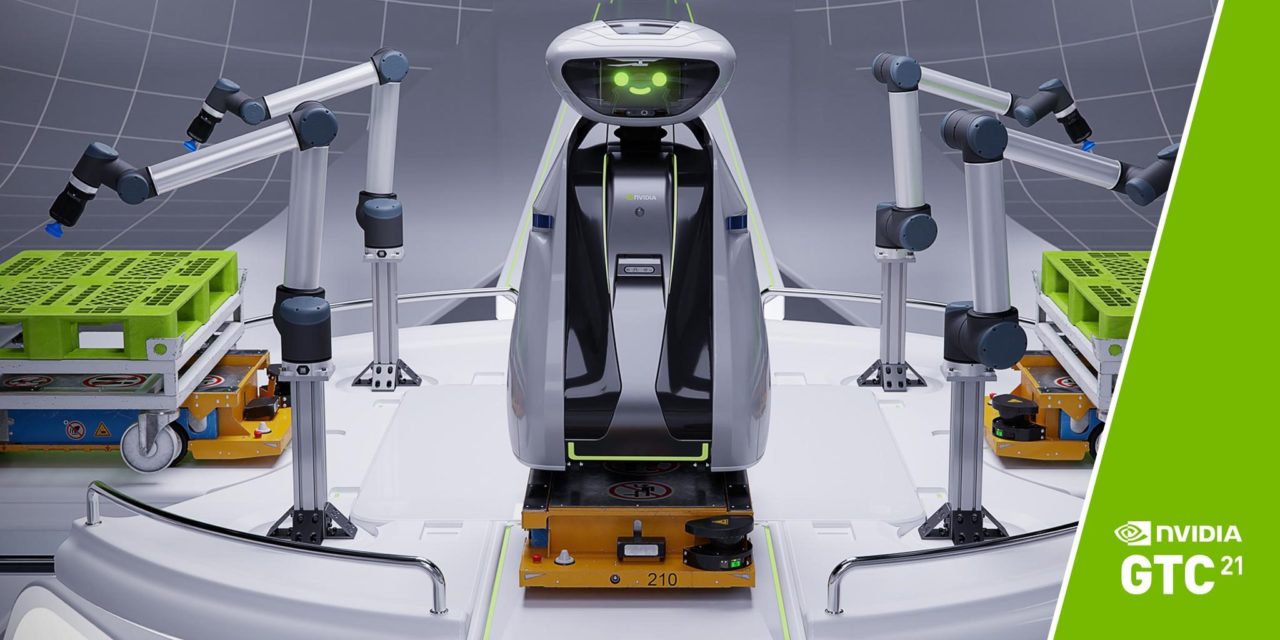AI will take center stage at GTC, bringing together thousands of developers, business leaders, researchers — and robots — from around the world.
With a record 1,500+ sessions this year, GTC, running April 12-16, offers a wealth of content for anyone building and deploying the next generation of autonomous machines, from getting started with AI to advanced sessions for developers and manufacturers deploying real-world robotics applications.
Here’s a partial list to help you navigate some highlights of the embedded, edge AI and robotics technology sessions available at the conference. To optimize your experience, register for free here and then add the sessions of interest below to your event scheduler.
Get Started on Developing AI
Business leaders realize there aren’t enough engineers and data scientists with the expertise needed to meet growing demand. Upskilling in AI and robotics is critical to success for individuals and organizations leveraging automation as it reshapes our post-pandemic existence at home and work.
To learn the basics of AI or brush up on your deep learning skills, add these sessions to your calendar: Jetson 101: Learning Edge AI Fundamentals (S32700); Build Edge AI Projects with the Jetson Community (S32750); and Optimizing for Edge AI on Jetson (S32354).
Many of the hands-on educational sessions are designed to help you learn and teach AI, including getting hands-on AI in the classroom with ETH Zurich and Duckietown on Jetson (S32637) and outlining deep learning robotics curriculum in high schools with Jetson Nano (S32702). You can also choose from two “Learn with Us” sessions presented by NVIDIA Deep Learning Institute (SE3258 or SE3283).
Commercial AI and Robotics Applications
Companies are using AI for good worldwide, leveraging NVIDIA technologies to address critical challenges — from improving the productivity of farming to waste management in the face of global population growth.
For example, companies like Farmwise and Ponchon are enabling sustainable agriculture and increasing crop yields (S32884); AMP Robotics is using AI-based robots at scale to revolutionize recycling (S32250); and MaskCam (in a session with BDTI) is demonstrating a mask detection and social distancing application to ensure public health and safety (S32588).
Enterprising firms and NVIDIA Inception startups are designing new collaborative methods to enhance manufacturing and logistics, ensuring post-pandemic safety and efficiency. Plus One Robotics’ AI-enabled cobots work together with humans to automate warehouse tasks (S32641), and BMW is leveraging robots for inspecting vehicles in its AI factory of the future (S31367).
Get Up to Speed on Simulation and Training
A key enabler to making widespread automation a reality is the speed at which simulation technology helps developers model the real world. Technologies like the NVIDIA Omniverse and NVIDIA Isaac platforms are used for every aspect: from the development of mechanical robots and training them in navigation and behavior, to deploying a “digital twin” in which the robots are simulated and tested in accurate, photorealistic virtual environments before being deployed to operate autonomously in production.
Join these sessions to see sim-to-real technologies in action: Volkswagen Group details learning, inference and control in spatial environments (E31780); Carnegie Mellon University explains how to improve reinforcement learning for robot manipulation (S31221); University of Oxford outlines dynamic, robust control solutions for robotic locomotion (S31585); Mondragon University presents a digital-twin use case for industrial collaborative robotics applications using Isaac Sim (S31530); and Stanford University demonstrates large-scale human supervision for learning robot manipulation (S31755). You can also connect with NVIDIA experts to learn how to train robots in simulation and transfer to real robots (S31824).
Cutting-Edge Robotics Research
NVIDIA continues to investigate how AI along with physics-based reinforcement learning (RL) and photorealistic simulation can be used to train manipulators in virtual environments and then deploy them in the field.
Most previous work on applying RL to robotics and automation involved clusters of thousands of CPUs. You can now train some of these RL policies on a single GPU in a fraction of the time. Advanced research topics at GTC include Deep Learning Warm-Starts Grasp-Optimized Motion Planning (S31905) and Robot Manipulator Joint Space Control via Deep Reinforcement Learning (S31238).
And you won’t want to miss Dieter Fox, senior director of robotics research and head of NVIDIA’s Robotics Research Lab, who will demonstrate how to use deep learning and simulation to teach robots manipulation in complex environments (S33109).
Jetson Partner Ecosystem Sessions
For developers and manufacturers striving to solve complex robotics challenges, the availability of robust, accurate and reliable edge computing solutions within the NVIDIA Partner Network and Jetson Developer Ecosystem affords a simple, cost-effective path forward when deploying AI-driven autonomous machines.
Check out these partner sessions to help you build and deploy computer vision, AIoT healthcare applications and more (including building your own personal pet feeder!) by AAEON Technology (SS33108, SS33128, SS33130); Aetina Corporation (SS33137, SS33129, SS33126); ADLINK (SS32769, SS32770); Arrow Electronics (SS32998, SS32972); Sparkfun Electronics (SS32981, SS32985); Advantech (SS33263, SS33260, SS33261); AVerMedia Technology (SS33134, SS33135, SS33136); and EDOM Technology (SS33177, SS33045, SS33116), to name just a few.
Register Today for GTC
GTC will kick off with a livestreamed keynote by NVIDIA founder and CEO Jensen Huang on April 12 at 8:30 am PT.
This year’s virtual conference is the best place to get an inside look at how robots and breakthrough technologies in AI are transforming virtually every industry imaginable — from smart agriculture to manufacturing, transportation, healthcare, science, finance and the energy sector.
Omniverse is accelerating the world of robotics and making the future happen today. Learn more about the work that we’re doing to change the way tomorrow operates with some of our Robotics in Omniverse sessions from GTC 21 here.
